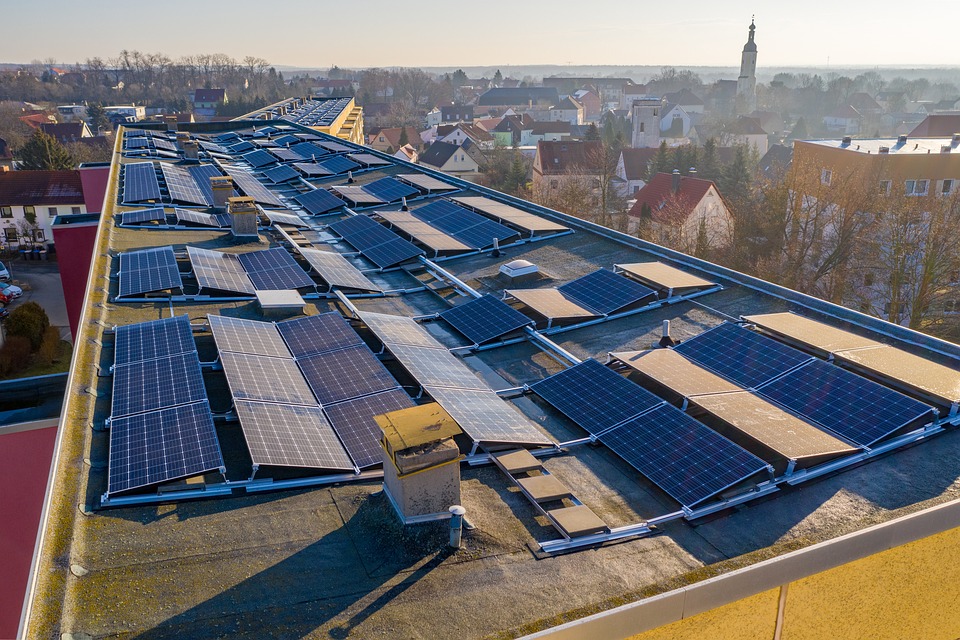Engineering the Grid: Understanding Power Engineering
What is Power Engineering?
Power engineering, also known as power systems engineering, is a field of engineering that deals with the planning, design, construction, and operation of electrical power systems. These systems are responsible for delivering electricity from power plants to homes, businesses, and industries. Power engineers play a crucial role in ensuring the reliability, efficiency, and safety of these systems.
Key Components of Power Engineering
Power Generation
Power generation is the process of producing electricity from various sources such as fossil fuels, nuclear reactors, and renewable energy sources like solar and wind power. Power plants are designed to generate electricity at a specific voltage and frequency, which is then transmitted to the power grid.
Power Transmission
Power transmission involves the transportation of electricity from the power plant to the distribution grid. This is done through high-voltage transmission lines, substations, and transformers. The transmission system is designed to minimize energy losses and ensure reliable delivery of electricity.
Power Distribution
Power distribution is the process of delivering electricity from the transmission grid to the end-user. This involves a network of distribution lines, substations, and transformers that step down the voltage to a level safe for residential and commercial use.
Challenges in Power Engineering
Grid Resilience
The power grid is a complex system that is vulnerable to various threats such as natural disasters, cyber-attacks, and equipment failures. Power engineers must design and operate the grid to ensure its resilience and ability to withstand these threats.
Renewable Energy Integration
The increasing adoption of renewable energy sources like solar and wind power poses new challenges for power engineers. Integrating these sources into the grid requires advanced technologies and sophisticated control systems to ensure grid stability and reliability.
Electrification of Transportation
The electrification of transportation is a growing trend that requires significant upgrades to the power grid. Power engineers must design and operate the grid to accommodate the increased demand for electricity from electric vehicles and charging infrastructure.
Advances in Power Engineering
Smart Grid Technologies
Smart grid technologies are revolutionizing the power industry by enabling real-time monitoring and control of the grid. These technologies include advanced sensors, communication systems, and data analytics that improve grid efficiency, reliability, and sustainability.
Energy Storage Systems
Energy storage systems are critical for integrating renewable energy sources into the grid. Power engineers are developing advanced energy storage technologies like batteries, pumped hydro storage, and compressed air energy storage to ensure grid stability and reliability.
Advanced Materials and Technologies
Advances in materials science and technology are enabling the development of more efficient and sustainable power systems. Power engineers are designing and testing new materials and technologies that can improve grid performance, reduce energy losses, and enhance overall system reliability.
Conclusion
Power engineering is a complex and dynamic field that requires a deep understanding of the power grid and its various components. As the power industry continues to evolve, power engineers must stay ahead of the curve by adopting new technologies, designing more efficient systems, and ensuring the reliability and sustainability of the grid.
FAQs
Q: What is the difference between power engineering and electrical engineering?
A: Power engineering is a specialized field of electrical engineering that focuses on the planning, design, construction, and operation of electrical power systems.
Q: What are the key challenges in power engineering?
A: The key challenges in power engineering include grid resilience, renewable energy integration, and the electrification of transportation.
Q: What are some of the latest advances in power engineering?
A: Some of the latest advances in power engineering include smart grid technologies, energy storage systems, and advanced materials and technologies.
Q: How do power engineers ensure the reliability and sustainability of the grid?
A: Power engineers ensure the reliability and sustainability of the grid by designing and operating the grid to minimize energy losses, integrating renewable energy sources, and adopting advanced technologies and materials.


_1.png?w=150&resize=150,150&ssl=1)

_1.png?w=150&resize=150,150&ssl=1)
_1.png?w=150&resize=150,150&ssl=1)

